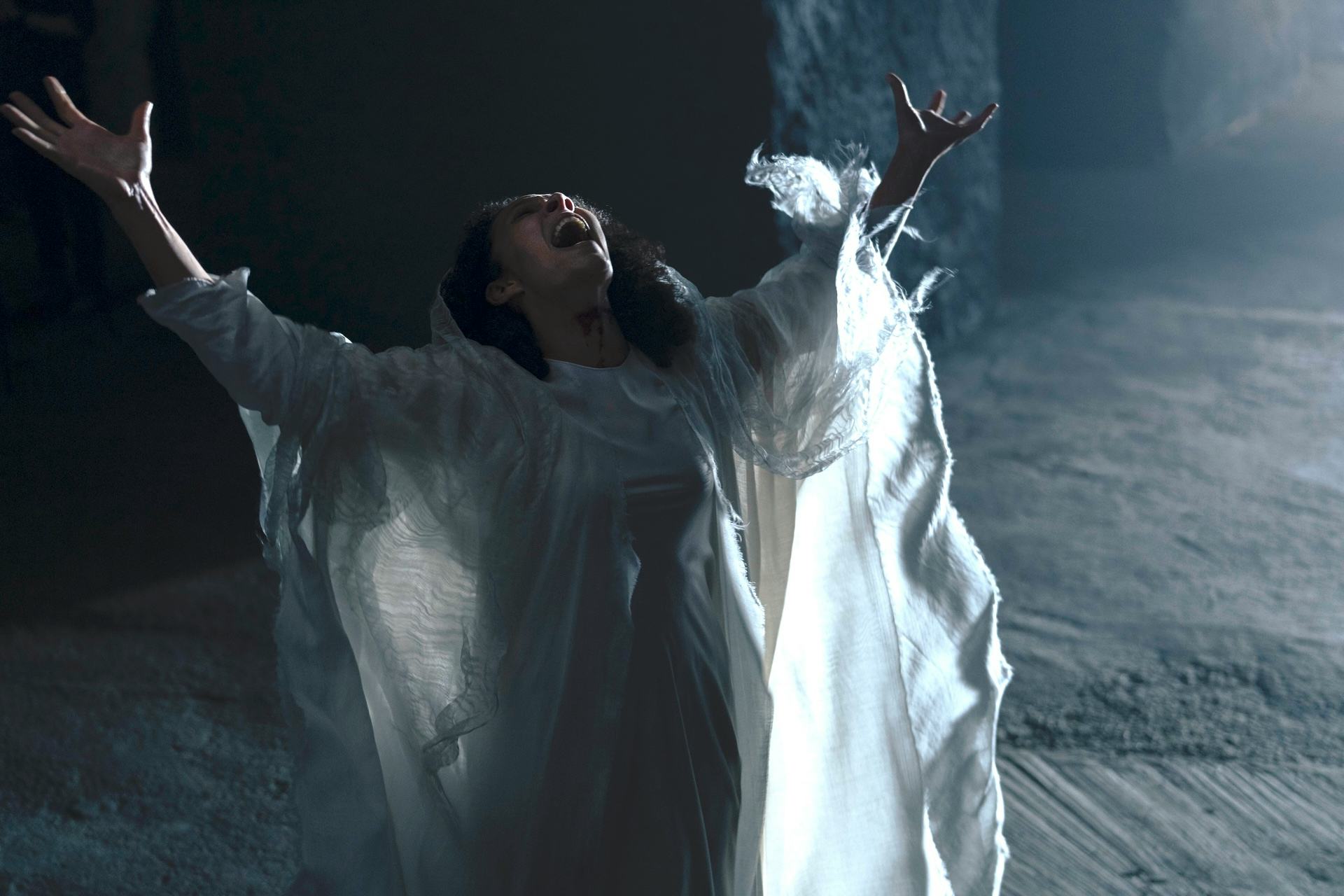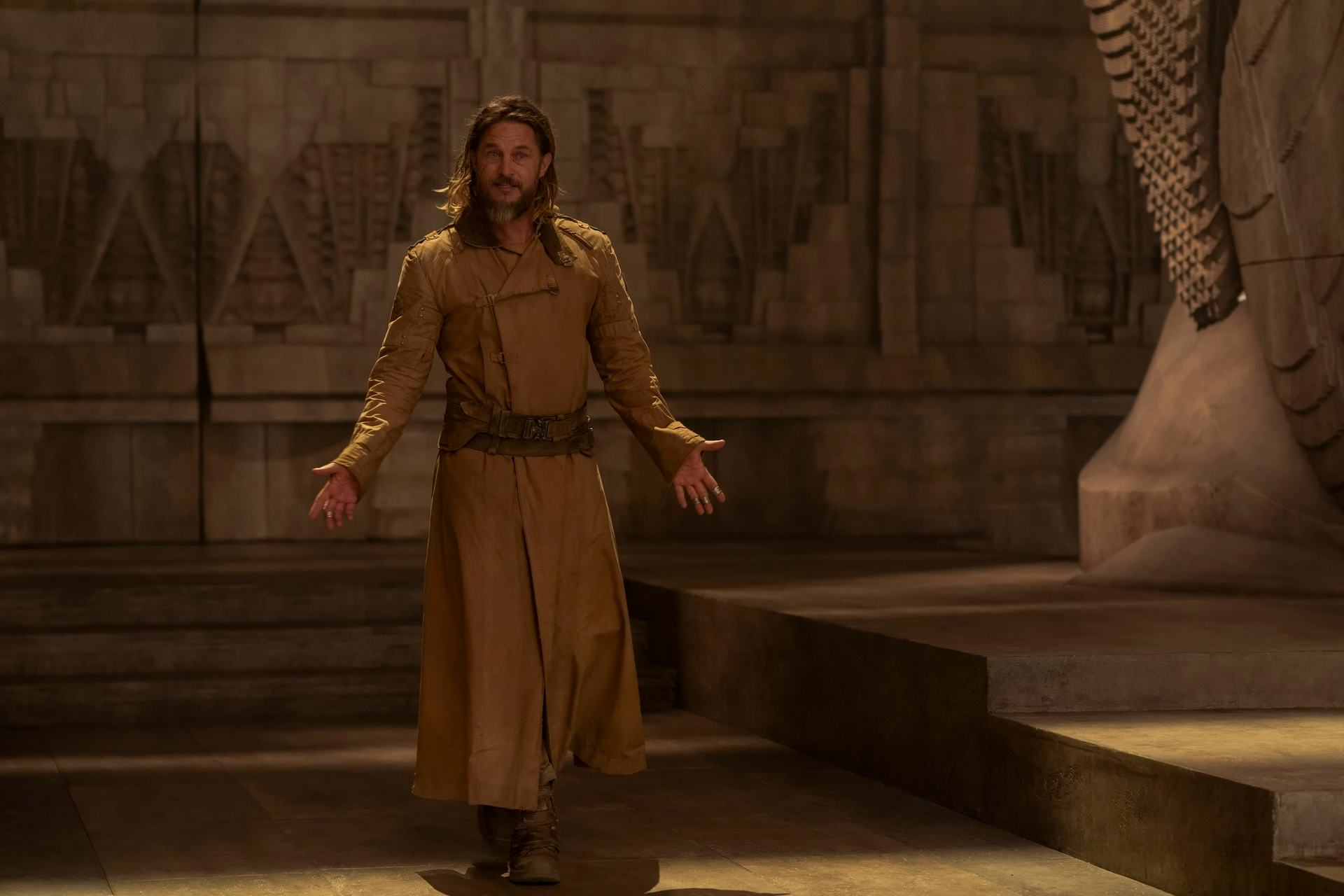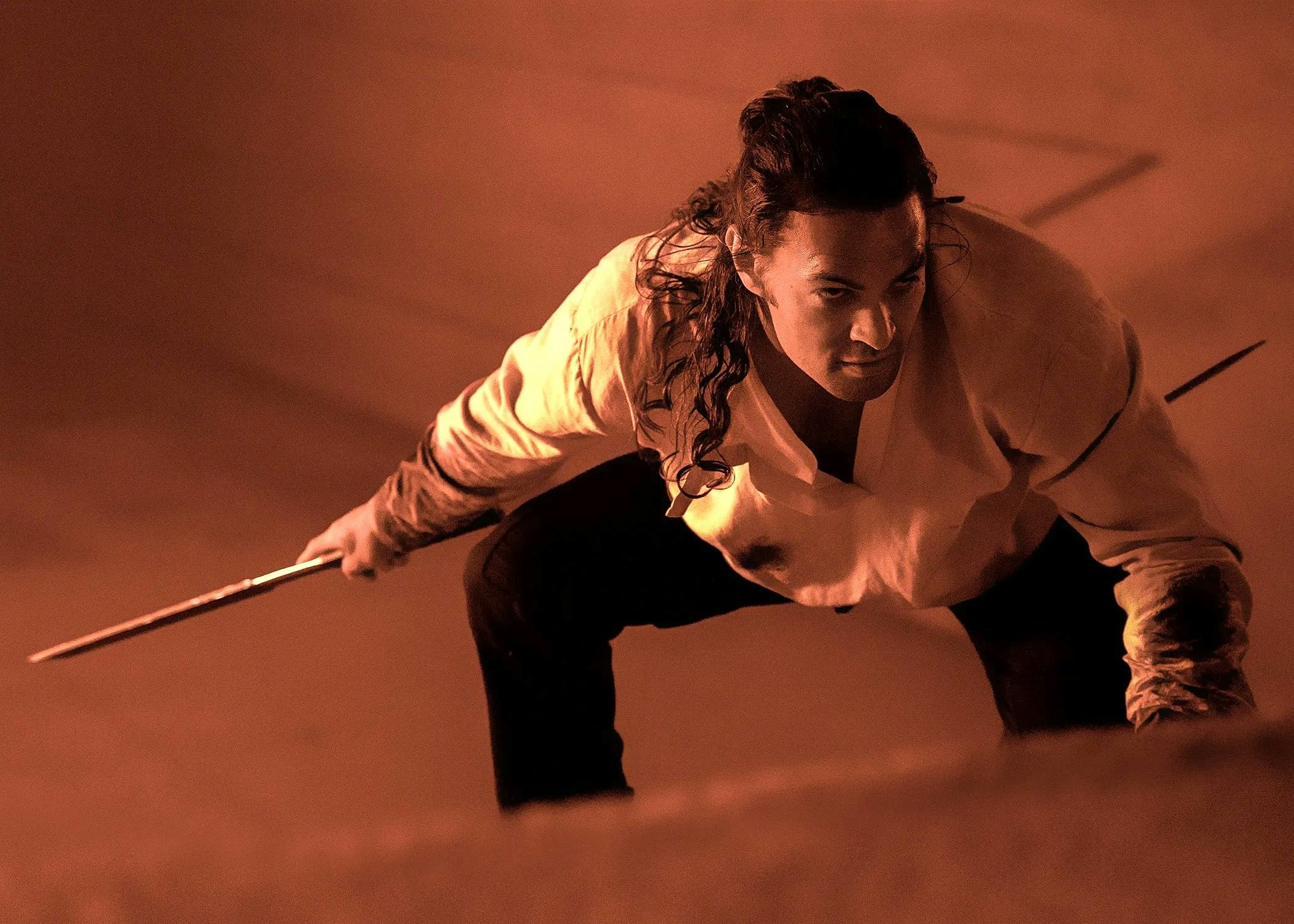
At first glance, Dune: Prophecy doesn’t seem like the type of show that would lend itself to a ton of off-the-wall fan theories connecting to future films in the franchise. From a canonical point of view, the events of Prophecy are so far in the past that finding direction connections to the status quo of the first Dune is a little tricky. Yes, the titular Prophecy could refer to the coming of Paul Atreides and his heirs, but then again, maybe not. Instead, Prophecy is a more foundational type of prequel, the world of Dune is built from what we see here, though the dot-connecting between various characters and family trees (like the Corrinos, Atreides, and Harkonnens) is more circuitous.
And yet, the biggest mystery box character in Dune: Prophecy — the enigmatic Desmond Hart (Travis Fimmel) — might be an early version of a huge moment from Dune Messiah. In other words, if Desmond Hart’s true nature is what some fans think it might be, then this is a low-key set-up for a big twist in the next Dune feature film.
Spoilers ahead for Dune: Prophecy Episode 2, “Two Wolves.”
Is Desmond Hart a Ghola?

In Dune lore, there aren’t exactly clones but there are duplicates called “gholas,” which essentially are the reanimated flesh of a deceased person. Usually created by a sect called the Bene Tleilax, gholas used a technology called Axlotl tanks to be fully grown. When the entire living flesh wasn’t available, just one cell from the original host could be enough.
In Dune Messiah, the Duncan Idaho ghola had strange metallic eyes, which is somewhat reminiscent of Desmond Hart’s strange, reflective eyes in Dune Prophecy. On top of this, the details about Desmond Hart in the show suggest that he is “one twice-born; in blood and in spice.” If the “first” Desmond Hart was mostly decimated by that sandworm, then his second “birth” would be a ghola duplicate. Saying that birth was “in spice” makes a bit of sense since spice basically comes from sandworms in the first place.
If Desmond Hart is a ghola, it would explain many things about his nature. He behaves as though he’s not quite human, and seems to have a general disregard for biological life. This detached, cold nature fits with some version of gholas from the classic books, but not all of them.
The Second Coming of Duncan Idaho

The first ghola we meet comes from the second book, Dune Messiah, in the form of a reborn version of Duncan Idaho who initially goes by the name of “Hayt.” That’s right, Jason Momoa’s slain hero in Dune: Part One will almost certainly make an onscreen comeback in Dune 3. In the book, the Duncan ghola is sent to Paul Atreides as a kind of coded, walking timebomb. The idea is that eventually, this ghola will betray Paul. But because Hayt regains his memories from the original Duncan, he eventually becomes heroic again, meaning not all creepy, back-from-the-dead gholas stay the same.
In Prophecy, we might be seeing a template for how Dune 3 could portray the reborn Duncan ghola on screen. Desmond Hart hasn’t been confirmed to be a ghola, and yet his behavior is very similar to the way Hayt behaved at the beginning of Dune Messiah. And so if Hart is an early ghola, then his presence is not only parallel to Duncan’s fate in Messiah but predictive, too.







